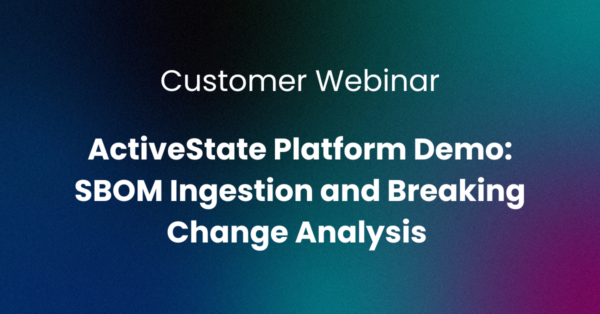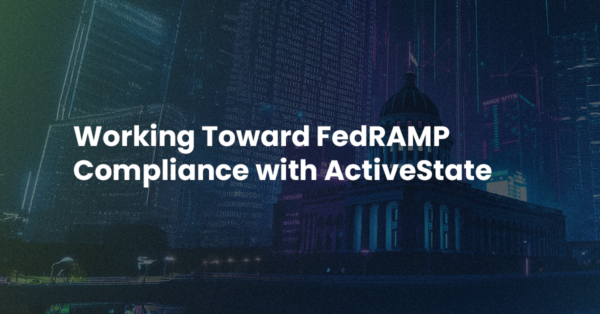This article was originally posted on Medium.
Earlier this year ActiveState announced our SaaS Platform and I wrote a post about the impetus for our Platform in context of “Helping Enterprises Keep Up With Coder Innovation”.
Recently we announced that our Platform is evolving with the ability to implement runtime security for Python applications — IT Security & DevSecOps teams can reduce time to detect and resolve open source language issues.
Today I want to step back (rise above the details) to focus on the core driver for our ActiveState Platform — our vision for open source languages.
Where We’re Headed
ActiveState is mapping out a new way to work with open source languages; languages like Python, Perl, Go, Tcl, Ruby, Node.js. It’s exciting, but also a little nerve-wracking, because we are trying to solve some very tough open source language challenges.
Our “new way” solves the challenges faced by everyone coding with open source languages.
Simply put, our vision is:
Run a single command and get coding with your Team
ActiveState Platform for Open Source Languages
ActiveState’s Platform lets enterprises say “yes” to coder needs instead of “no”.
We will remove roadblocks for all coders, like the “dependency hell” of open source runtimes, and fulfill security and compliance requirements for the enterprise.
ActiveState’s Platform inspires coder passion and collaboration by solving the plethora of problems that plague open source communities, and coders across the enterprise in using open source languages at scale.
We want coders to love using our ActiveState Platform, as much, or even more, than they love using GitHub.
Why We’re Doing This — And Some Street Cred
We’ve spent over 20 years delivering open source languages to enterprises, including 97% of the Fortune 1000 and millions of coders around the world. We’ve built countless custom distributions, identified challenges with performance and the rising challenge of security and compliance requirements.
We’ve learned there’s a gap between what dev needs (speed, no restrictions, no roadblocks) and what the rest of coders in the software development life cycle (SDLC) need (control, compliance, security).
And the gap keeps getting bigger as companies navigate polyglot environments and suffer through more constraints, less visibility and less control of what’s running in production.
Our SaaS Platform for open source languages closes the gap. It addresses the litany of runtime pains we’ve heard again and again.
Measuring our Progress
As I said above, “We want coders to love using our ActiveState Platform, as much, or even more, than they love using GitHub.” That’s the kind of experience we want everyone who uses our Platform to have.
But since we’re defining a market around the aggregation of open source runtime pain, initial progress won’t be about measuring things like engagement.
Early on, progress won’t be about discrete, unambiguous numbers. At first, progress will be drawing awareness to the challenges with open source runtimes.
In the years ahead, success will be easier to measure. It will mean more coders across the open source communities and enterprises using our SaaS Platform to build, secure and monitor their open source languages. And their spending more time using our Platform to solve their day-to-day challenges with open source runtimes.
We want everyone from IT, data scientists, developers & QA to DevOps and DevSecOps to be able to spend time on what they love to do and use our Platform to resolve the pain points they face every day. Whether the pain point is setting up a new machine, pushing out to a new environment or shrinking build size with only the packages needed.
We Want to Hear From You
I am really excited about what we’ve charted out this year to achieve our vision, and it’s got me and my fellow Activators super pumped but we also need your help. We’re spending a lot of time listening, sharing and creating conversations. But we need to do more.
Want to help shape what our ActiveState Platform looks like? Open to sharing the challenges you’re facing with open source languages? Or maybe just interested in learning more?
Create a free account or contact us here.






